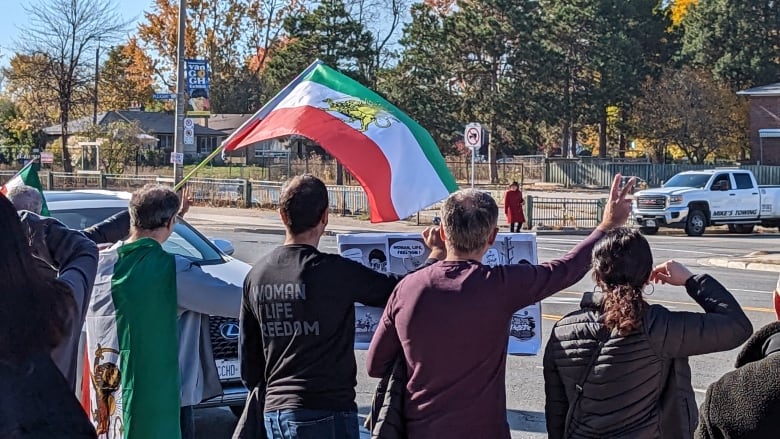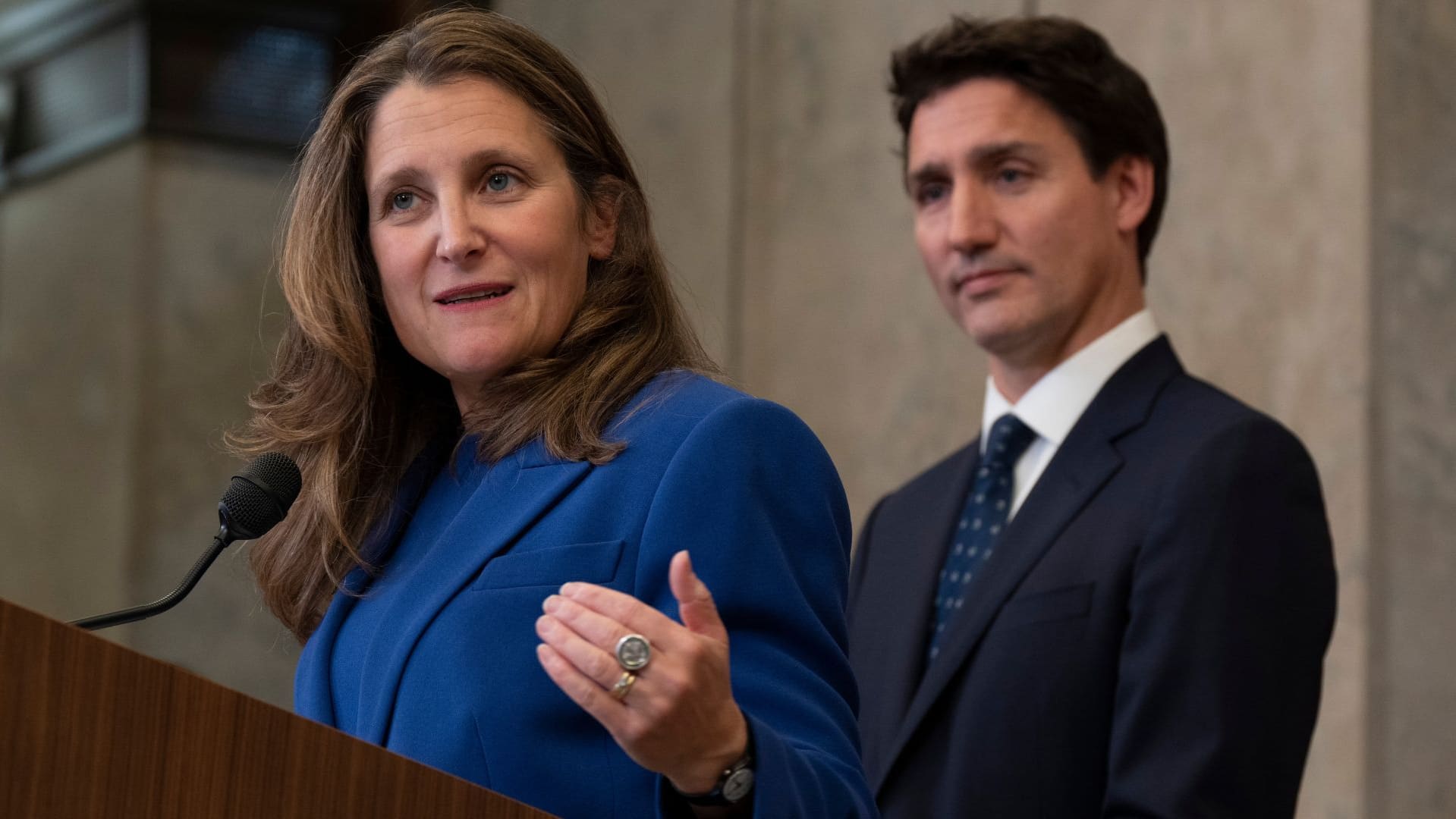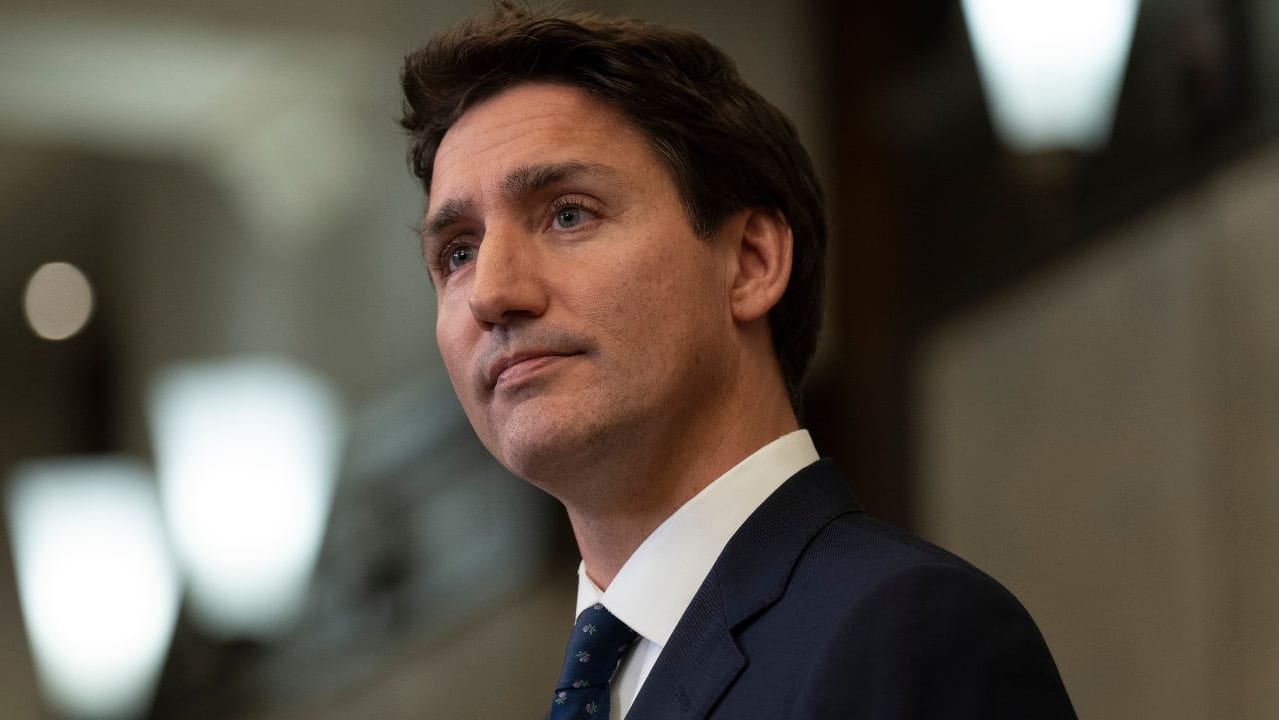
As Iran’s Islamic Revolutionary Guard Corps (IRGC) warn of crackdowns on street protests, the European Union and Germany are considering whether they should join countries like the United States and officially designate the militia group as a terrorist organization.
The protests, sparked by the death of Mahsa Amini, who died on Sept. 16 after being detained for allegedly violating the country’s strict Islamic dress code for women, has prompted Canada to take action against Iran and condemn the IRGC.
The federal government has referred to the IRGC as a terrorist organization, described its leadership as terrorists, and announced measures to make some members of the group inadmissible to Canada. As well, the government continues to list a branch of the IRGC, its expeditionary Quds Force, as a terrorist entity.
Yet, despite calls from the federal Conservative party, activists and the Association of Families of Flight PS752 Victims, the government has refused to designate the whole militia group as a terrorist entity under Canada’s Criminal Code.
“It’s a valid question as to what’s the reluctance. I don’t know what’s going on through the minds of the foreign minister or public safety minister or the prime minister,” said Phil Gurski, a former terrorism specialist with the Canadian Security Intelligence Service. “I mean, if anything, this is really a no-brainer.”
“The IRGC definitely meets those criteria.”

CBC News explains what steps the government has taken, its stated reasons for not listing the IRGC as a terrorist entity, and other potential motivations for its reluctance.
What is the Islamic Revolutionary Guard Corps?
The Islamic Revolutionary Guard Corps (IRGC) was formed following Iran’s 1979 revolution, created to protect the new government. It has since, according to the Council on Foreign Relations website, grown to become one of the most powerful paramilitary organizations in the Middle East. It operates its own intelligence services and answers directly to Iran’s supreme leader.
It is a branch of the Iranian armed forces but operates independently of the regular military and has vast economic interests across the country. The U.S. estimates it may control or have a significant influence over up to 50 per cent of the Iranian economy, including non-military sectors like banking and shipping.
But it has also been accused of orchestrating a number of state-sanctioned terror attacks throughout the world, while also offering support to terrorist organizations, accusations Iran denies.
What is Canada’s terrorist list?
The list was created in the aftermath of the 9/11 terrorist attacks under the Anti-Terrorism Act, which amended the Criminal Code in 2001.
To be placed on the list, which now includes 73 groups, there must be “reasonable grounds to believe that an entity has knowingly participated in or facilitated a terrorist activity, or has knowingly acted on behalf of, at the direction of, or in association with such an entity,” according to the Government of Canada’s website.
If designated, banks can freeze a group’s assets and police can charge anyone who financially or materially supports such a group.
The list includes al-Qaida, Boko Haram, and the Proud Boys.
What has Canada said about the IRGC?
In June 2018, the federal Liberals supported a House of Commons motion introduced by the Conservatives that sought to “immediately designate the Islamic Revolutionary Guard Corps as a listed terrorist entity under the Criminal Code of Canada.” But since that motion, the IRGC has yet to be designated.
There was a renewed push last year after an Ontario Superior Court of Justice ruled that the shooting down of Flight PS752 by the IRGC was an intentional act of terrorism.and and constitutes “terrorist activity.”
In response to the death of Amini, the federal government announced last month that it would be taking steps under the Immigration and Refugee Protection Act (IRPA) to make top members of the Islamic Revolutionary Guard Corps (IRGC) — potentially 10,000 people — inadmissible to Canada.
And it was during that announcement that Deputy Prime Minister Chrystia Freeland referred to the IRGC leadership as “terrorists” and the IRGC as a “terrorist organization.”
Still, Canada has not taken the extra step to list it as a terrorist entity.
So why won’t Canada list the IRGC as a terrorist entity?
In a news conference last month, Attorney General and Justice Minister David Lametti explained that since the IRGC is part of Iran’s military, and military service is mandatory, there are concerns that the Criminal Code would be too much of a “blunt instrument” to deal with the group. He said the government needs to target the truly “bad actors without catching innocent people as well.”
Including the IRGC in those terrorist listings might unfairly capture Iranians in Canada who oppose and fled the regime, but had been conscripted into the IRGC.
“We don’t want to punish innocent people or those against the regime,” he said.
Thomas Juneau, who specializes in the politics of the Middle East at the Graduate School of Public and International Affairs at the University of Ottawa, agreed that the problem with the IRGC is that in the over 40 years of the Islamic Republic, there are over “hundreds of thousands of individuals, mostly men, who have been in the IRGC, in many cases conscripts.
“They were cooks. They were in administrative or clerical positions briefly in the 1990s or 2000s. So do you really want to sanction them? In some cases they’re innocent.”
Are there other reasons the government might be reluctant?
The implementation of listing the IRGC as a terrorist entity would be extraordinarily resource intensive, Juneau says. The demand that such a listing would impose on agencies like the RCMP, CSIS, the Canada Border Services Agency, and FINTRAC, the financial intelligence unit, would be massive, he said.
WATCH | Canada bans top Iranian revolutionary guard members in new sanctions:
Prime Minister Justin Trudeau and Finance Minister Chrystia Freeland announced a new round of sanctions on Iran, banning the top 50 per cent of Islamic Revolutionary Guard Corps members from entering Canada.
“This is not just a matter of hiring five summer students. You need to hire people with very technical skills in financial intelligence and border security. You need to train them. You need to get them a security clearance, usually at the top secret level,” he said.
But there’s also a legal issue that the government has not discussed that could be the most significant barrier to including the IRGC on the list.
Andrew House, who specializes in national security law and who was the chief of staff to former public safety minister Vic Toews, said that during Stephen Harper’s government, there was a legal categorization debate over what kind of entity should be included in that list.
Under the Criminal Code, entity is defined as “a person, group, trust, partnership or fund or an unincorporated association or organization.”
That means the IRGC, as an arm of the Iranian government, might technically not fit into that category; arguably, it’s a state actor, which are subject to sanctions, but wouldn’t be placed on a terrorist list.
“That’s the purist legal position,” House said. “Judges make a big deal of these types of differences. So from a technical legal perspective, the advice that was always advanced by the system itself, was, ‘Hey, make sure you categorize these things properly. You might have to fight this in court someday.'”
But in 2012, the Harper government wanted to send a signal that the IRGC conduct was terrorist in nature, despite the objections of officials who wanted to maintain purity in legal categories, House said. A compromise was reached to include a branch of the IRGC, Iran’s Quds Force, on the list, the logic at the time being that it was more of a loosely affiliated militia, House said.
WATCH | Canada seeks to ban members of Iranian regime from country:
On top of adding more Iranian officials and entities to its sanctions list, the federal government is pursuing measures that would block members of the Iranian regime from entering Canada and potentially kick their family members out of the county.
“In the cold light of history. I don’t think that argument is any longer supportable,” said House. “The Quds Force as we understand it is led by uniformed members of IRGC. They are very much part of the state.”
Yet House said, despite legal technical definitions, symbolic messages are important and he believes the IRGC should be on the list as “we’ve already crossed that bridge.”
“Let’s go the full measure,” he said.
House points out that the Taliban, for example, are on the list, and that they are the de facto government of Afghanistan.
“If you want it to be legally pure about this, you should delist the Taliban. And I don’t know anyone who would be supportive of that.”

